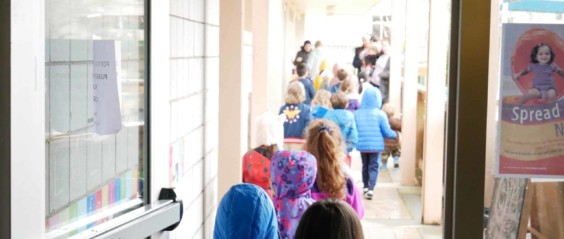Need to know: COVID-19
- As of 11:40 a.m. on Friday, March 27, there were 763 confirmed cases in North Carolina with three deaths.
- Gov. Cooper signed a statewide stay at home order that will go into effect Monday, March 30 at 5 p.m.
- All North Carolina K-12 public schools will be closed through May 15. Both the UNC System and the NC Community College System have advised colleges to move instruction online wherever possible.
- Due to testing shortages, North Carolina is following CDC recommendations that people with mild symptoms should stay home and call their doctor to decide if they need a test. Check out this fact sheet from NC DHHS on what to do if you feel sick.
- Parents who need food assistance for their children can text FOODNC to 877-877 to locate nearby free meal sites.
For more, EdNC.org is updating this article daily with news and resources. All daily updates are archived at the bottom of the post.
Policy challenge: Child care for essential workers
Before we get to this week’s policy challenge, an update on last week’s challenge of historic unemployment.
- Yesterday, the U.S. Department of Labor released the numbers for unemployment claims last week, and the figure shocked the country: 3.3 million. Economists expect that number to continue to grow over the next few weeks and months.
- President Trump signed into law a $2 trillion stimulus package.
One of the biggest issues states are facing now that schools are closed is how to make sure essential workers, like health care workers, have child care. My colleague Liz Bell has been following how North Carolina is responding — sign up for her Early Bird newsletter to stay up-to-date.
While all K-12 schools have been closed the past two weeks, NC DHHS has allowed child care centers to remain open. As Liz reports, on Wednesday, NC DHHS issued new guidelines for child care centers. The guidelines do the following:
- Require child care centers that wish to stay open or reopen fill out an emergency child care provider application by March 31.
- Pay child care providers an extra $300 per month for full-time child care teaching staff and $200 a month for non-teaching staff for April and May.
- Pay all centers using February attendance numbers for NC Pre-K and child care subsidy slots.
- Create a Critical Worker Emergency Child Care Subsidy program. Starting April 1, parents who are essential workers, have no other child care options, and whose gross income is below 300% of the poverty line can apply to receive a child care subsidy.
To see how other states are responding to this challenge, take a look at this resource from the Hunt Institute that tracks state child care actions in response to COVID-19.
As I said last week, I’m trying out this format while we respond to coronavirus. Feel free to reply to this email and give your feedback. Do you like this format? Want more COVID-19 news? Want less? What questions do you have? Let me know by replying here or emailing [email protected].
What we're reading
Child care centers that remain open face challenges — and tough choices
Liz looks at how child care centers are responding to COVID-19 and speaks with one early childhood educator. ... Read the rest-
Talking reading and policy with President Pro Tem Senator Phil Berger
-
New county estimates offer 2020 Census preview
-
Challenges of Equitable Rapid Response Cash Payments
-
Wi-Fi and hotspots 'still won't work' for rural districts lacking connectivity
-
How the Pandemic Will End
-
Civic Health and Social Distancing


